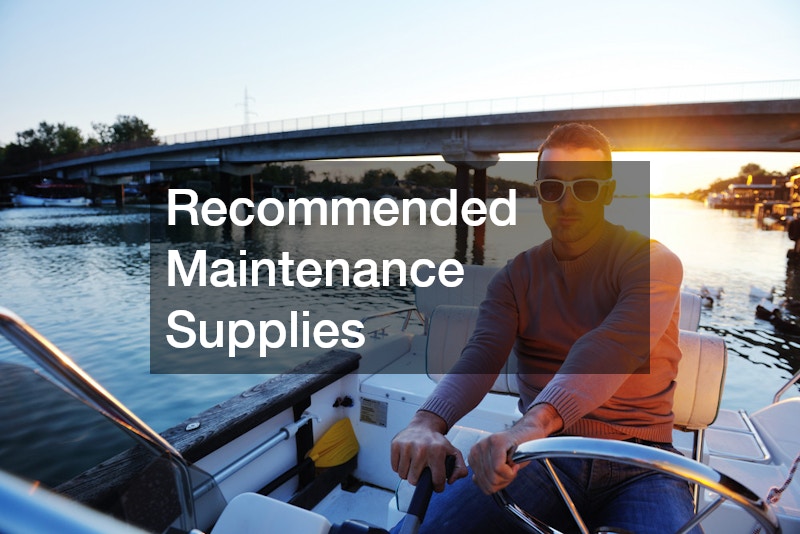This guide serves as an entry point for those new to boat repair and maintenance. Understanding the basics of boat care not only extends the lifespan of your vessel but also ensures safety and performance. Let’s dive into the three most frequently asked questions by beginners in the world of boat maintenance.
How Often You Should Perform Routine Boat Maintenance
Understanding Maintenance Schedules
One aspect of boat maintenance involves adhering to a consistent schedule that fits the type and usage of your vessel. Most experts agree that a general rule of thumb is to perform routine maintenance at least twice a year, with more frequent checks during peak boating seasons. It’s crucial to consider factors like climate, as warmer regions might increase the frequency of maintenance due to salt corrosion and humidity.
Boats used in freshwater environments may follow a slightly different schedule, focusing more on mechanical systems rather than salt damage. Seasonal inspections are vital to keeping your vessel in top condition, regardless of whether you are a casual boater or a frequent sailor. Scheduling maintenance at the start and end of the boating season ensures a smoothly operating vessel throughout.
Creating a maintenance log helps you track the necessary intervals for each component of the vessel. This practice not only aids in timely upkeep but also enhances resale value by demonstrating how well the boat has been cared for over time. Regular maintenance also allows for early detection of potential issues, ultimately saving time and reducing costly repairs.
Essential Maintenance Checks
Routine checks are critical for identifying and addressing issues before they become significant problems. The engine is often the heart of any boat, so regular inspections to check for leaks, worn belts, or oil changes are essential. Always ensure your electrical systems are up to code, inspecting for frayed wires or faulty connections that could lead to outages or fires.
The hull of the boat requires periodic scrutiny to ensure there are no cracks or signs of osmosis, which can compromise safety and performance. It’s also important to examine the boat’s safety equipment, such as life vests and fire extinguishers, to ensure they are in good working order. An often-overlooked aspect is ensuring that all fluid levels are correctly maintained, from the coolant to the hydraulic fluids.
These checks, when done regularly, help maintain optimal boat health and increase the lifespan of your vessel. Consistency is key; molecular-level corrosion or material fatigue may go unnoticed until they cause failure during operation. Documenting each maintenance session allows you to build a history, giving insight into patterns that require more specialized attention.
The Most Common Boat Repairs and How to Address Them
Troubleshooting Engine Problems
Engine troubles are one of the top issues boat owners encounter, largely because of their complexity. Common engine issues include trouble starting, overheating, and unusual vibrations, which can often be traced back to fuel line blockages or coolant system failures. Learning to differentiate between minor fixes and problems requiring professional help is key.
One starting point in resolving engine problems is ensuring that the fuel is fresh and the filters are clean, as stale fuel is a prime cause of engine headaches. Overheating might require checking the impeller and ensuring the water pump is operating correctly. If an engine continues to act up, it is wise to consult a marine mechanic to prevent further damage.
Addressing Hull Damage
Hull integrity is paramount for ensuring safe and efficient boating activities. Over time, weathering, collisions, or poor docking habits can lead to hull damage, requiring prompt attention. Initially, identifying the type of hull damage—such as blisters, scratches, or cracks—is crucial.
For minor surface damage, utilizing patch kits can perform adequate repairs, particularly for fiberglass hulls. More severe issues like deep cracks might necessitate applying resin or fiberglass cloth as a patch, ensuring the area is smooth and water-tight. For significant structural damage, engaging the services of a professional shipyard is advisable to ensure comprehensive and safe repairs.
Tools and Supplies That Are Essential for Boat Maintenance
Basic Toolkit Must-Haves
Every boat owner should equip themselves with a basic toolkit designed for typical maintenance and repairs. Common tools include wrenches, screwdrivers, pliers, a multimeter, and oil filters. Investing in waterproof and corrosion-resistant tools ensures durability and performance, particularly in marine environments.
In addition to hand tools, power tools like a cordless drill and Dremel can facilitate easier and more efficient repairs. A torque wrench is vital for ensuring that fittings and fasteners meet specified settings, while a heat gun can be invaluable for shrink wrapping or repairs requiring heat applications. Having a well-rounded toolkit adds confidence and capability in handling emergencies, cruising or otherwise.
Recommended Maintenance Supplies
Maintaining a boat requires not only tools but also an array of supplies suited for ongoing upkeep and protection. Essential supplies include marine-grade cleaning products, biodegradable degreasers, and detergents. Investing in high-quality lubricants and anti-corrosion sprays can stave off rust and wear, extending the longevity of moving parts.
Advanced products like bottom paint protect against marine growth, crucial for performance and fuel efficiency. Moreover, a supply of general-purpose repair adhesives and sealants can facilitate quick fixes while cruising. Safety supplies, including gloves and goggles, are fundamental for personal protection during maintenance tasks.
Understanding the basic principles of boat repair and maintenance is crucial for any boat owner. By keeping up with routine checks, addressing repairs promptly, and equipping yourself with the right tools and supplies, you can ensure your boat remains in excellent condition. With this foundational knowledge, you will be well-prepared to enjoy safe and pleasurable adventures on the water.


